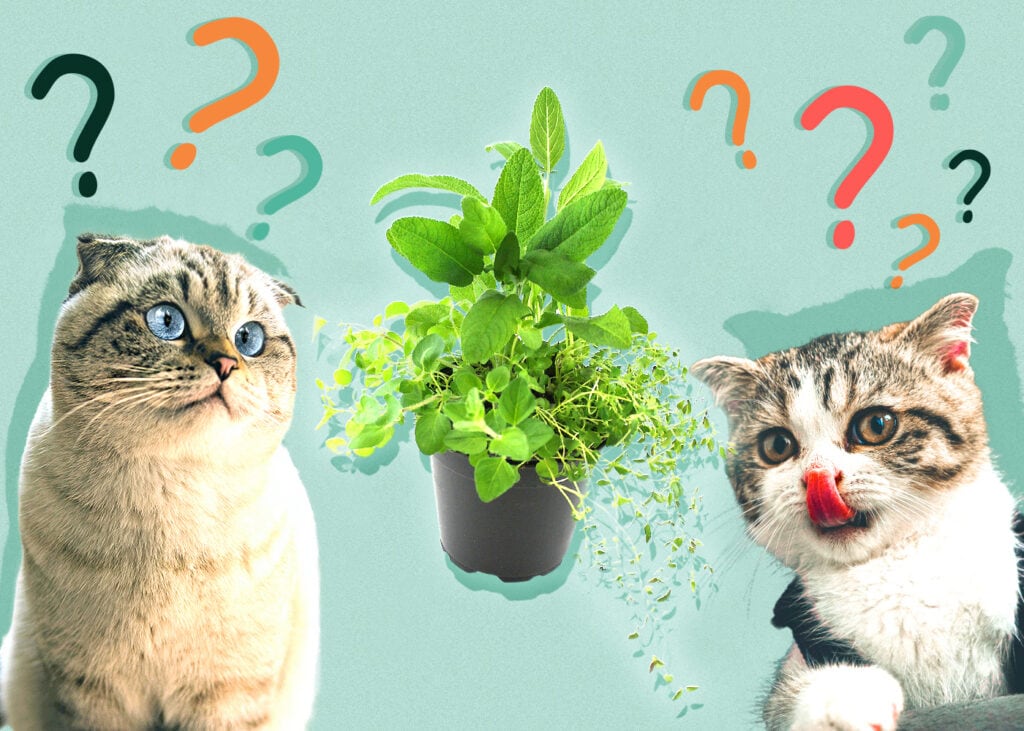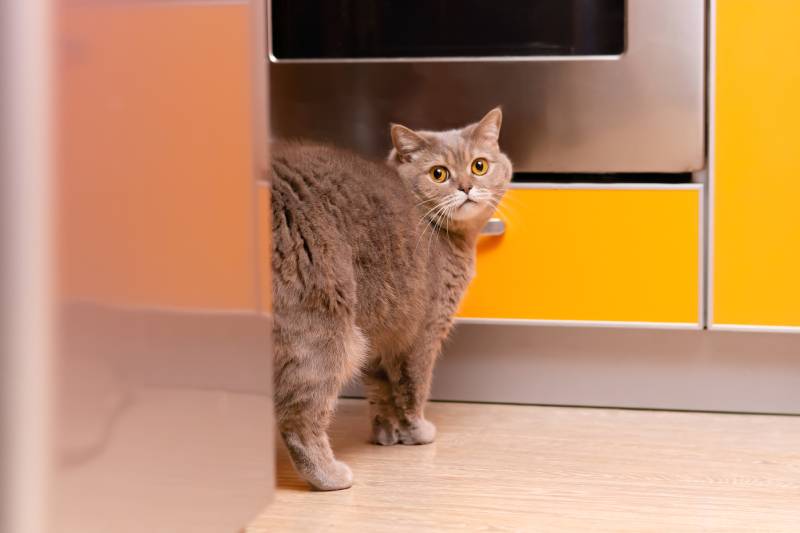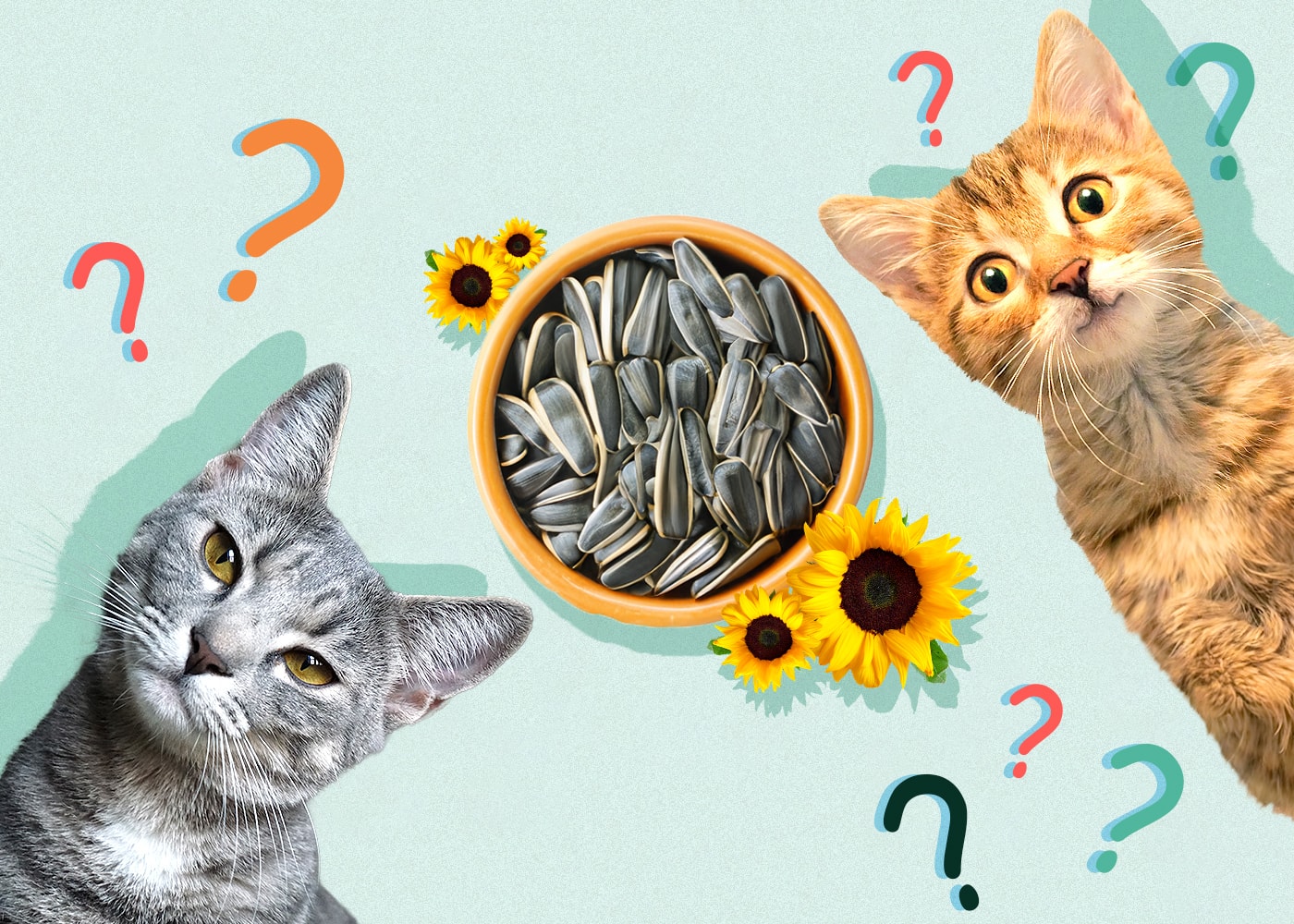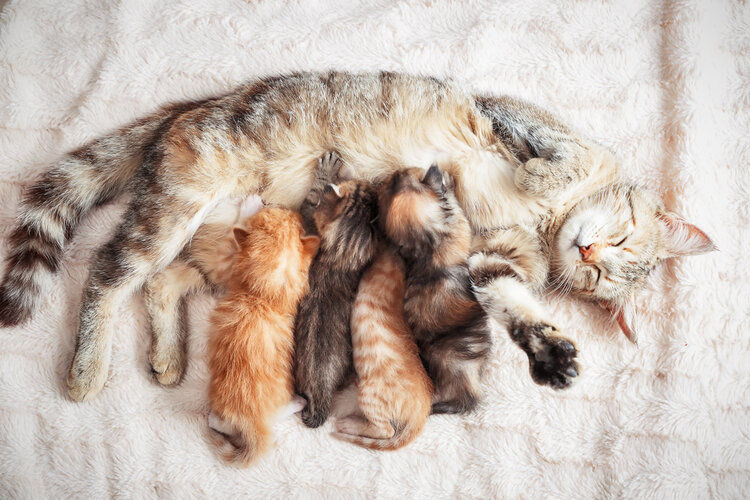Can Cats Eat Thyme? Nutrition Facts & Safety Guide
Updated on

As a relative of the oregano plant, thyme is quite fragrant and flavorful. It is typically utilized for culinary and medicinal purposes, but many find that its beauty is also perfect for ornamental reasons. Thyme can be harvested off the plant and immediately introduced to a culinary dish for added color, texture, and flavor.
It can be soaked in oils to create a flavorful topping for things such as bread, pizza, and lasagna. Thyme can also be utilized to make tea, which is full of antioxidants and compounds that can calm the nervous system.1 Thyme is known to help lower blood pressure, reduce symptoms of coughing, act as a mood booster, and even prevent infections caused by bacteria.2
If thyme is so healthful and beneficial for humans, can cats benefit from it too? Is it safe to feed thyme to cats? What are the consequences of doing so? Yes, cats can eat thyme, but there is much to consider when deciding whether they do so.
Here is all the information that you should know before making a final determination.
Here’s Why Cats Can Eat Thyme
Thyme is a natural herb that cats seem to enjoy the scent, flavor, and texture of, and for good reason. This herb may or may not be as beneficial to cats as it is to humans. In humans, this herb acts as an antibacterial and antifungal, helps keep the digestive tract healthy, and even works to get rid of intestinal parasites when ingested regularly.
Other Types of Herbs That Are Safe for Cats to Consume

Herbs can be beneficial additions to your cat’s diet when offered in moderation. Your cat should never eat copious amounts of herbs as if they were consuming a salad. Instead, thyme and other herbs should be utilized as a small and infrequent enrichment. Here are a few types of herbs other than thyme that your cat may enjoy eating from time to time:
- Witch hazel
- Valerian
- Dandelion
- Basil
- Dill
- Rosemary
Of course, catnip is the most famous type of herb that felines are known to gravitate to, but it is not the only one. Wave a sprig of rosemary in front of your cat’s nose or leave a dandelion leaf on the table to see what your cat does. Chances are that they will show interest!
Herbs That Your Cat Should Not Consume
Unfortunately, not all herbs are safe for cats to consume. Some herbs can have dire consequences and should always be avoided. For example, garlic is toxic to cats, and consuming it can result in problems such as vomiting, bloody urine, panting, a loss of red blood cells, and a higher-than-average heart rate. Here are other types of herbs that you should never offer to your feline friend:
- Chamomile
- John’s wort
- Mint
- Tarragon
- Lemongrass
It is important to make sure if you grow any of these herbs inside or outside your home that they are kept away from the reach of your cat. Hanging potted plants from the ceiling inside and the eaves outside is a great way to keep your cat safe.
Now that you know what you can safely feed your cat, it’s just as important to find a bowl that supports their health and well-being. With whisker-friendly bowls and a wide tray to catch any spills, our Hepper NomNom Cat Bowl is our favorite option.
In Conclusion
Thyme may be a healthy addition to any cat’s diet if offered in moderation, though it is not needed in their diet. As always, it’s best to discuss with your vet before adding thyme to your cat’s diet.
See also:
- Can Cats Eat Bread? Vet-Reviewed Facts, Precautions & Alternatives
- How to Keep Cats Away from Plants: 8 Vet-Approved Tips
Featured Image Credit: TAGSTOCK1, Shutterstock













